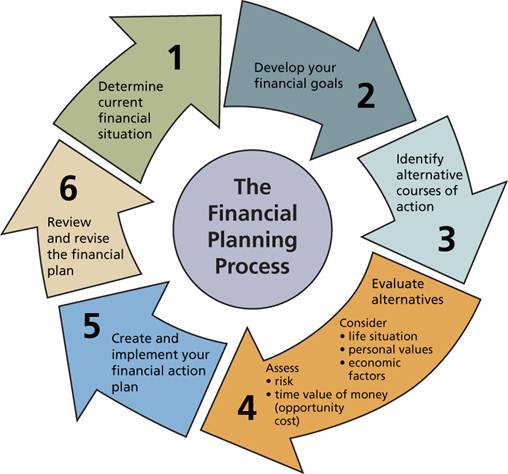…You’re both set in your financial ways
Allowing someone into your life can mean
surrendering a degree of control. “Financial and emotional independence often
coincide, especially when you’ve been single for a prolonged period,” says
Lurie.

Capetonians Caryn, 27, a journalist, and
Rob, 29, an IT consultant, had both been single for a few years before getting
together and, naturally, they had their own ideas about spending and saving.
While Caryn saves and avoids splashing out, Rob earns well but doesn’t set
anything aside. “Rob isn’t a frivolous spender, but he enjoys the finer things
in life and can rarely say no to a bargain,” says Caryn, who bought her car
with cash and put a large deposit down on her flat to lower the bond
repayments. “I work hard at making my money work for me,” she says. However,
Rob’s biggest expense is paying off his car – a constantly depreciating
commodity.
When starting a new relationship, “talk to
your partner about how you’ve handled certain affairs, where it has worked for
you and where you might require his assistance,” says Lurie.
Having both a joint and personal account
works for many couples. But remember that once your partnership becomes
permanent you are answerable and accountable to each other. Bills often have to
take precedence over a new pair of shoes or a handbag (tough, we know!).
Caryn has re-evaluated her spending since
the couple moved in together. “I’ve learnt that living frugally can sometimes
mean not living”. She understands that when marriage is on the cards and assets
and expenses are combined, they’ll have to compromise further. “But I’m still
not certain I’ll enjoy putting money into a pot that will be used to pay off
Rob’s car!” says Caryn. Likewise, Rob is contributing to Caryn’s flat, which
may not have been his first choice of home.
Nevertheless, Caryn and Rob’s compromises
have enhanced their relationship – because they’ve both had to make them.
“Compromising is not sacrificing your individual needs, but making choices that
will benefit the relationship, and that will ultimately benefit both parties,”
says Mallaby. And with that out of the way, you can leave space for enjoying
life, and each other – and that doesn’t cost a thing.
How to talk money with your honey

Our Guy Next Door reveals the best ways to
have the chat
How you tackle money together is important.
For a guy, even if he’s not a high-flying businessman, lawyer or banker, the
need to be capable of providing is huge. Take that away and he’s left
emasculated, listless, and a shell of what his earning capacity could be.
Don’t be the money police
By nature, men and women have different
approaches to cash. Probably an evolutionary hand-me-down from the “you tend
cave, me attack 10-ton woolly mammoth with whittled stick” school of investing,
men tend to take more high-reward, high-risk options, while women are better
savers. For guys, it’s often a question of self-esteem – a dick-measuring contest.
Run through some “what-if” scenarios if you
won the Lotto – it will give you a better understanding of how the other views
money and help you chart a way forward that keeps you both happy.
And remember, while it’s cool for your
focus to be on holidays together and recovering that hideous paisley lounge
suite, merely thinking about the money you’ll need to pay for it is not going
to help. Whether you’re at the joint account stage or not, implement a few
simple rules based on what you’re earning. For example, after bills, a
percentage of your salaries goes to paying each of you an allowance to spend as
you like, while another percentage goes towards chipping away at the cost of
bigger purchases/ dreams/ trips and so on. And those purchasing decisions are made
by committee of two. No maverick ideas to raid the fun fund and buy first-class
tickets to Rio (unless your surname is Motsepe, of course)
What not to say to your guy
Why don’t I run the finances?
Unless he really has zero aptitude for
dealing with money, attempting to completely sideline him is exclusionary and
condescending and reeks of Anna Nicole Smith. Have roles, but do it together.
What have you been doing with your money?
Chances are he’s been pumping a lot of it
into your relationship. Accusing him of wasteful expenditure may open up a can
of worms regarding how both of you spend of don’t spend cash. It could also
give rise to score-keeping and stamp out any desire he may have to splash out
on you just because he feels like it.
What’s this statement reference for Sloppy
Joe’s Titty Bar?
If you have separate accounts, don’t go
snooping. If and when you decide to share your financial information, you still
need to show some discretion. Unless, of course, you think he’s wasting your
future children’s university fund on the former Ukrainian beauty queen.
Functional Financing

Financial
Planning Process
Get your finances – and relationship – in
order with these tips from certified financial planner Natasja Norval Hart.
1. Each partner should consider their spending habits – especially when
it comes to luxury items. Do you shop to fulfil a need, keep up appearances or
to compensate for another area in your life? By understanding this, you can
both nip potentially problematic purchasing behavior in the bud.
2. A budget is more than just a list of planned expenses; it’s also
about reviewing what you actually spend. Set aside time at the end of each
month to review your finances together – and make it fun by giving yourselves a
reward on completion. And choose a time that suits both of you. Just before
kick-off is not a good idea.
3. Discuss big expenditures with your man. Is upgrading to the iPhone
4S really necessary? Will watching television in 3D revolutionise your world?
The price of items such as TVs and other electronics tends to drop quickly, so
holding off on knee-jerk, emotional spending could work in your favour.